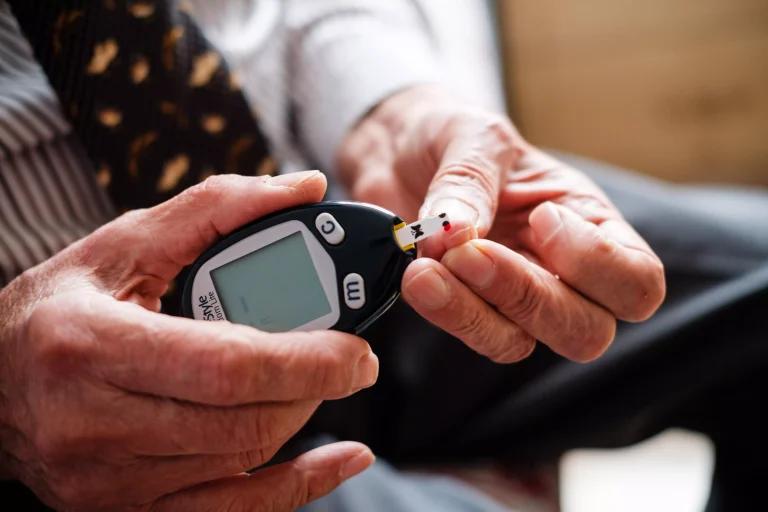Autoimmune diseases are complex conditions that affect millions of people worldwide. These disorders occur when the body’s immune system mistakenly attacks its healthy cells and tissues. This leads to a wide range of symptoms and potential complications. While many individuals with autoimmune diseases can manage their conditions effectively, some cases can progress to life-threatening situations, making it crucial to understand the risks involved.
This article aims to look at how autoimmune diseases can become fatal and what essential information people need to know.
Understanding autoimmune diseases
Definition
Autoimmune diseases are conditions in which the immune system mistakenly attacks healthy cells in the body. Normally, the immune system protects against diseases and infections by creating specific cells (antibodies) to target foreign invaders. However, in individuals with autoimmune disorders, the immune system fails to distinguish between foreign cells and the body’s own cells. As a result, it releases proteins called autoantibodies that attack healthy tissues.
Types
There are over 100 types of autoimmune diseases, affecting various parts of the body. Some target specific organs, while others can affect multiple systems. Common autoimmune diseases include:
- Rheumatoid arthritis: Affects joints
- Type 1 diabetes: Damages the pancreas
- Lupus: Can affect the whole body
- Psoriasis: Impacts the skin
- Multiple sclerosis: Attacks nerve cells
- Inflammatory bowel diseases: Affect the digestive tract
- Graves’ disease: Damages the thyroid, overproducing thyroid hormones
- Hashimoto disease: Damages the thyroid, under-producing thyroid hormones
- Scleroderma: Causes an abnormal growth of connective tissue in the skin and blood vessels
Causes
The exact causes of autoimmune diseases remain unknown, but several factors may contribute to their development:
- Genetics: Inherited genes can increase susceptibility
- Environmental factors: Exposure to sunlight, chemicals, or certain infections
- Sex: People assigned female at birth are more likely to develop autoimmune diseases
- Ethnicity: Some conditions are more common in specific ethnic groups
- Diet: Nutrition may impact risk and severity
- Other health conditions: Obesity and existing autoimmune diseases can increase risk
While the triggers vary, autoimmune diseases often share common early symptoms, including fatigue, dizziness, low-grade fever, muscle aches, and trouble concentrating. Some conditions, like psoriasis, may have periods of flare-ups and remission. Understanding these factors can help individuals recognise potential signs and seek appropriate medical attention.
How autoimmune diseases can become life-threatening
Autoimmune diseases, while often manageable, can potentially lead to serious complications and life-threatening situations. These conditions, which affect millions of people worldwide, can impact various parts of the body and cause significant health risks if not properly managed.
Organ damage
One of the most severe consequences of autoimmune diseases is organ damage. For instance, type 1 diabetes can result in kidney failure if left untreated. In autoimmune hepatitis, the immune system attacks the liver. This can potentially cause serious and unpredictable liver flare-ups. These flare-ups can be particularly dangerous during pregnancy, leading to pre-term birth and interfering with the unborn baby’s growth.
Complications
- Autoimmune diseases can lead to various complications that may become life-threatening:
- Heart disease: Conditions causing inflammation, such as lupus and rheumatoid arthritis, can affect the heart
- Deep vein thrombosis: Ulcerative colitis and Crohn’s disease increase the risk of developing blood clots, which may travel to the lungs and cause a pulmonary embolism
- Neuropathy: Many autoimmune disorders can lead to nerve damage, resulting in numbness and weakness in the arms or legs
Severe flare-ups
Flare-ups are periods when symptoms worsen, and they can be particularly dangerous in some autoimmune conditions:
- Systemic Lupus Erythematosus (SLE): Flare-ups can cause fever, joint pain, fatigue, and rashes. Nephritis, an inflammation of the kidneys, is one of the most severe flare-ups, with up to 20% of patients developing end-stage renal disease
- Multiple Sclerosis (MS): Flare-ups can lead to muscle weakness, blurred vision, slurred speech, and bladder issues. These episodes can last for weeks or even months
In severe cases, flare-ups may require immediate medical attention, especially if symptoms include trouble breathing, severe chest pain, sudden weakness, or intense pain.
Recognising fatal symptoms
Autoimmune diseases can present with a wide range of symptoms, varying in severity from person to person. While many individuals manage their conditions effectively, it’s crucial to recognise signs that may indicate a life-threatening situation.
Red flags
Several warning signs, or “red flags,” can help identify potentially serious autoimmune complications:
- Persistent fatigue that doesn’t improve with rest
- Sudden weakness or difficulty with simple tasks
- Unexplained skin issues or hair loss
- Chronic joint pain and morning stiffness
- Recurring low-grade fevers without infection
- Chronic inflammation and swelling
- Heightened sensitivity to sunlight
- Dry eyes and mouth
- Increased susceptibility to infections
- Memory problems
- Sudden weight loss
- Recurring mouth ulcers
- Vision problems
- Shortness of breath or chronic cough
When to seek emergency care
While many autoimmune symptoms can be managed with regular medical care, certain situations require immediate attention. Patients should seek emergency care if they experience:
- Severe chest pain
- Difficulty breathing
- Sudden weakness, especially on one side of the body
- Intense, unexplained pain
- Signs of deep vein thrombosis or pulmonary embolism
It’s important to note that diagnosing autoimmune diseases can be challenging, as symptoms often overlap with other conditions. Patients should inform their healthcare provider of any new or worsening symptoms immediately.
Prevention
Early diagnosis
Early diagnosis plays an important role in managing autoimmune diseases effectively. Laboratory testing is essential when evaluating a patient with a suspected autoimmune condition. These tests can confirm a diagnosis, estimate disease severity, and aid in assessing prognosis. A common test would be a complete blood cell count.
Treatment options
The main aim of treatment for autoimmune diseases is to achieve remission with no active inflammation. Treatment aims to quickly control symptoms and inflammation to limit potential permanent organ damage. Various medications are available, including:
- Corticosteroids: These drugs work quickly to lessen the immune system’s overactive response but may have side effects
- Anti-inflammatory drugs: These medications help control the immune system while supporting organ function
- Immunosuppressants: Drugs like methotrexate and azathioprine lower the body’s ability to make T and B cells
- Biologics: These target specific parts of the immune system, such as TNF blockers or IL-1 inhibitors
Lifestyle changes
Alongside medical treatments, lifestyle changes can significantly impact autoimmune disease management:
- Diet: Consume organic, fermented foods rich in probiotics and prebiotics. Avoid processed foods, artificial additives, and simple carbohydrates
- Exercise: Regular physical activity can improve sleep, decrease inflammation, and enhance cognitive ability
- Stress management: Practice stress-reduction techniques like meditation, yoga, or deep breathing exercises
- Sleep: Aim for 7-9 hours of quality sleep each night to support tissue repair and hormone regulation
- Weight management: Maintaining a healthy weight can help reduce inflammation in the body
By combining early diagnosis, appropriate treatment options, and lifestyle changes, individuals with autoimmune diseases can better manage their conditions and improve their quality of life.
Conclusion
Autoimmune diseases have a significant impact on millions of lives worldwide, with the potential to cause severe complications if not properly managed. Early diagnosis, appropriate treatment options, and lifestyle changes play key roles in controlling these conditions and limiting potential organ damage.
Sources
- Autoimmune Diseases: Types, Causes, Symptoms & Treatment
- Autoimmune diseases: a leading cause of death among young and middle-aged women in the United States. – PMC
- Autoimmune Diseases – Autoimmune Disease Symptoms – MedlinePlus
- Autoimmune diseases – Office on Women’s Health
- Understanding Autoimmune Diseases – NIH News in Health
Medical Disclaimer
NowPatient has taken all reasonable steps to ensure that all material is factually accurate, complete, and current. However, the knowledge and experience of a qualified healthcare professional should always be sought after instead of using the information on this page. Before taking any drug, you should always speak to your doctor or another qualified healthcare provider.
The information provided here about medications is subject to change and is not meant to include all uses, precautions, warnings, directions, drug interactions, allergic reactions, or negative effects. The absence of warnings or other information for a particular medication does not imply that the medication or medication combination is appropriate for all patients or for all possible purposes.











